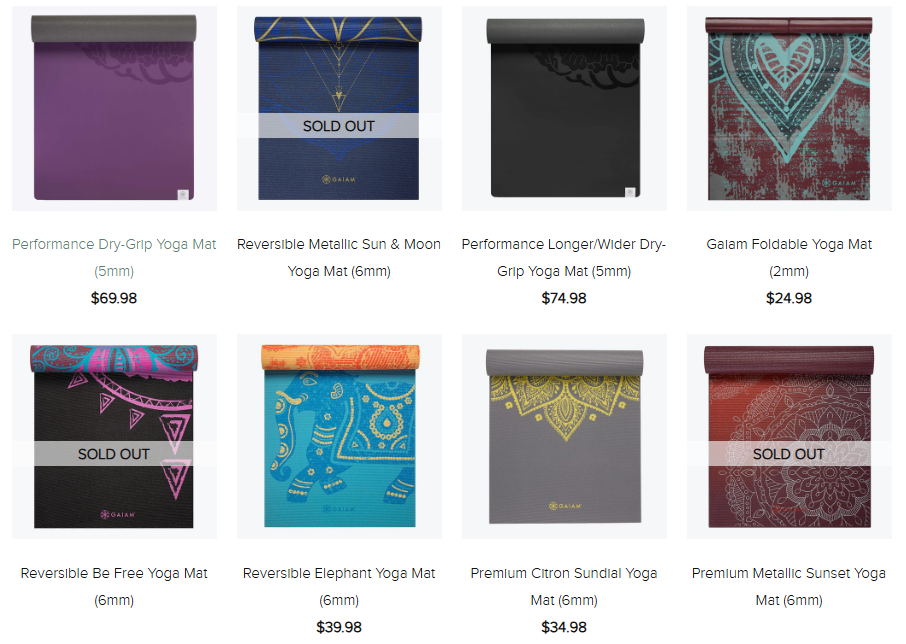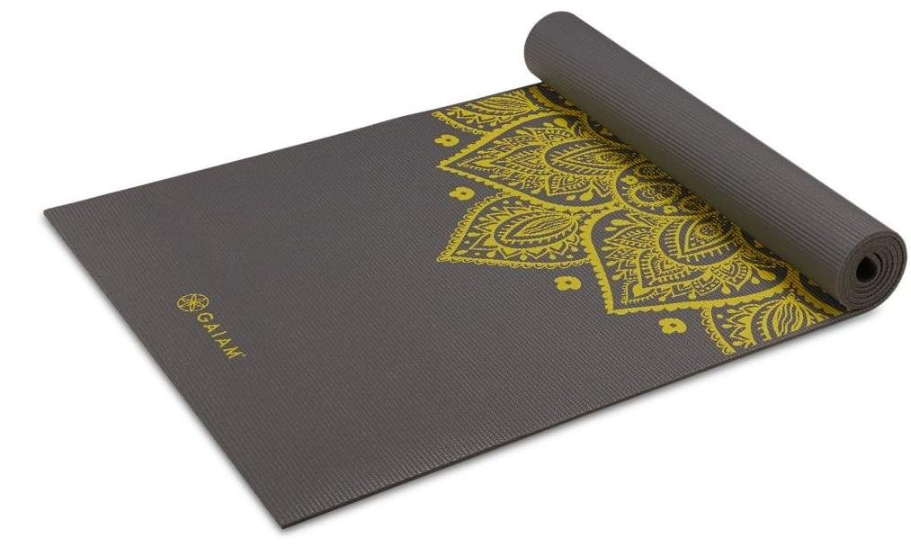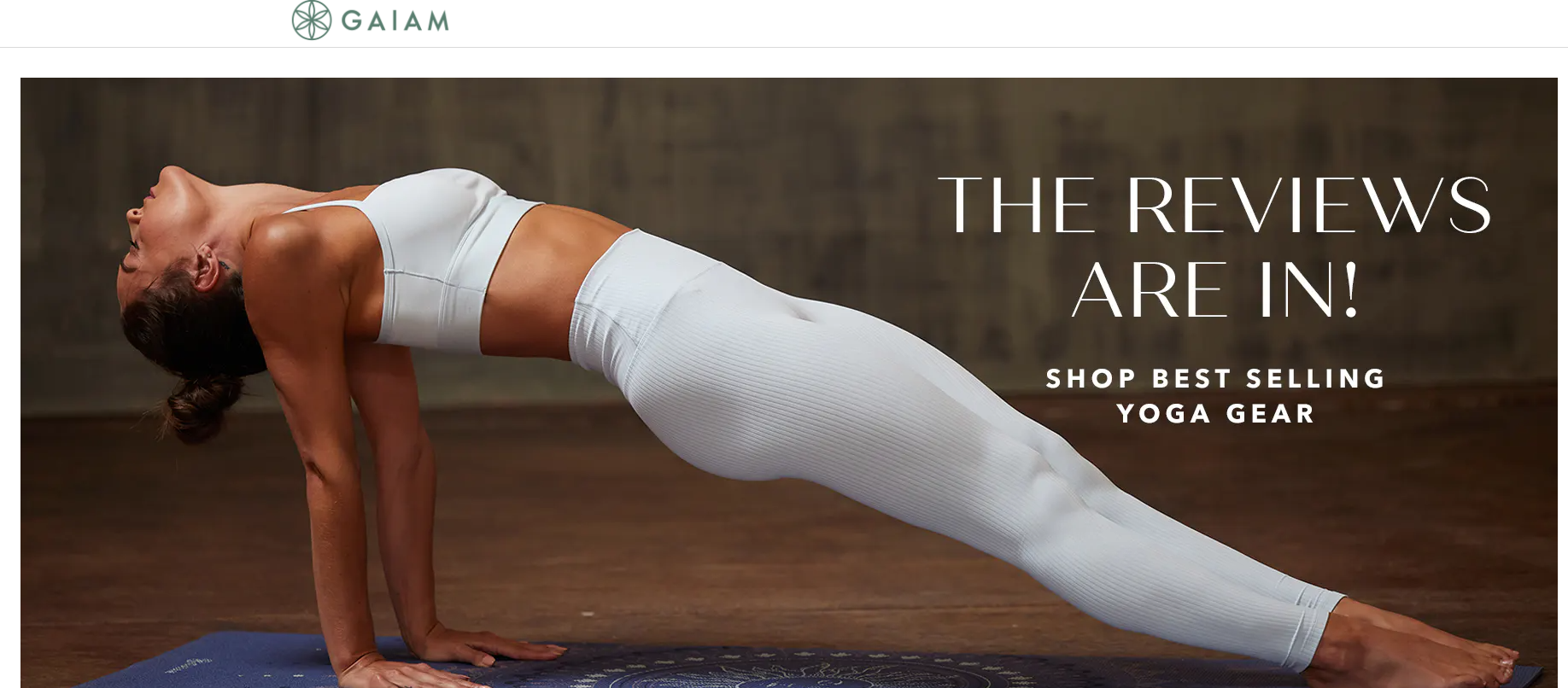I’ve always wondered who makes the Gaiam Yoga Mats you see everywhere. I used to think Gaiam did everything themselves, but I found out that’s not the whole story. The truth is quite interesting. It involves a network of trusted factories, important certifications, and even some global connections. Based on my experience, I believe most shoppers overlook a key part of their production process.
Who Is Gaiam?

From my experience, Gaiam is a popular yoga and fitness brand from the U.S. The company focuses on making products that support a healthy and active life. I believe their gear is great for general wellness and fitness routines.
Brand Background
Gaiam started in the U.S. and is now a big name in the yoga world. I like that the brand uses quality and sustainable materials. This ensures their products work for everyone, from beginners to experienced yoga fans.
Wide Product Range
I find that Gaiam has a great variety of products:
– Yoga Mats: These are known for being durable and made from earth-friendly materials.
– Yoga Blocks: I suggest using these. They help you stay flexible and stable during poses.
– Apparel: They make comfortable clothes perfect for your yoga and fitness sessions.
– Accessories: You can also get items like straps, wheels, and meditation cushions.
Availability
I learned that you can find Gaiam products in most major stores. This makes it simple for you to get what you need. You can shop for Gaiam items at these places:
– Online: Sites like Amazon and Walmart.
– In-Store: I have seen that retailers such as Target also carry a selection of Gaiam items.
Does Gaiam Manufacture Its Own Yoga Mats?
From my experience, Gaiam does not make its own yoga mats. They work with companies called Original Equipment Manufacturers (OEM) and Original Design Manufacturers (ODM). Other companies produce most of their mats. I’ve found these partners are mainly in Asia, with a strong presence in countries like China and Taiwan.

Key Manufacturing Sources
My research shows Gaiam sources its yoga mats from different yoga mat manufacturer. These companies are experts in producing top-notch fitness equipment. I think this method lets Gaiam provide a variety of durable and earth-friendly mats. It also helps them avoid the high costs of running their own factories.
Quality Assurance
Even though they don’t make the mats themselves, I believe Gaiam has strict quality checks. This ensures the products meet their high standards. Working with these trusted makers guarantees that you get a dependable and lasting yoga mat. I suggest them for all users, from those just starting to experienced yogis.
Who Makes Gaiam Yoga Mats?
From what I’ve seen, various companies make Gaiam yoga mats. They are known as Original Equipment Manufacturers (OEM) and Original Design Manufacturers (ODM). Most of these partners are in Asia, with a strong presence in China and Taiwan. In my opinion, they excel at creating long-lasting fitness gear that is also good for the environment.

What I Look for in Gaiam’s Manufacturers
Based on my experience, Gaiam’s yoga mat manufacturing partners have a few key things in common:
- Certification: I notice many suppliers hold important certifications like BSCI, ISO, or SGS. This tells me they follow global manufacturing rules.
- Production Capacity: These factories can produce a large volume of mats. I think this helps Gaiam keep up with customer orders without long waits.
- Material Expertise: I suggest paying attention to their skill with different materials. They know how to handle TPE, NBR, PVC, and PU to create great yoga mats.
Top Manufacturing Areas
From my research, I see that most Gaiam mats come from specific parts of China. I would point to these main areas:
– Wuhan: This city has yoga mat factories like FDM Eco Fitness. They are recognized for making products that are better for our planet. – Fujian, Zhejiang, and Jiangsu: I have found that factories in these provinces also produce high-quality mats and follow good environmental practices.
I believe that working with these manufacturers helps Gaiam deliver quality mats. It also shows they are committed to offering sustainable products.
Why This Information Matters
It’s important to know who makes Gaiam yoga mats. This helps you make a better purchase. When we care about quality and green products, understanding production builds trust.
Importance of Manufacturing Partners
Gaiam works with Original Equipment Manufacturers (OEM) and Original Design Manufacturers (ODM). These partners are mainly in Asia. I’ve found this partnership means experts craft the mats. This makes them durable and good for the planet. This awareness lets you think about the ethical side of your purchase.
Quality Assurance and Certifications
The manufacturing partners have important certifications. These include BSCI, ISO, or SGS. These show they follow international manufacturing rules. Based on my experience, this means you can feel good about buying a high-quality yoga mat that meets strict standards.
Eco-Conscious Production
Gaiam shows its dedication to the earth by its factory locations. They choose places like Wuhan and provinces such as Fujian, Zhejiang, and Jiangsu. Factories in these regions focus on production methods that are good for the environment. This reassures you of the product’s green credentials.
Benefits for Consumers
I suggest you learn about Gaiam’s manufacturing sources and quality controls. This information helps you make a solid decision. It ensures you select fitness gear that is dependable and sustainable. This knowledge helps you shop with more awareness. You can align your personal values with the products you choose.
For brands
I recommend you learn how top companies choose their yoga mat suppliers. Gaiam likely evaluates factories based on quality, certifications, and eco-friendly practices. By studying their approach, you can refine your own sourcing strategy. This helps ensure your products align with market expectations and brand values.
For wholesalers
You can get a clear view of Gaiam’s product quality and sourcing rules. This gives you a benchmark when comparing different yoga mat options. You’ll also know what features customers expect from premium mats. Use this insight to make smarter, more informed bulk purchases.
For manufacturers
My advice is to use Gaiam’s system. It can help make your own production more competitive. Adopt similar material standards and design flexibility to attract global clients. Offer sustainable options, just like Gaiam does, to appeal to eco-conscious brands. Understanding top-brand expectations helps you improve both process and positioning.
Expert Opinion:
“Based on my experience, if you are in the fitness industry, you need to understand how top brands like Gaiam make their products. I’ve spent years managing supply chains. I saw firsthand how brands, wholesalers, and manufacturers all learn from analyzing successful partnerships.
From my point of view, here is what each group learns:
- Brands learn how to evaluate and choose their suppliers.
- Wholesalers learn to understand the benchmarks for quality.
- Manufacturers learn what it takes to meet the standards global brands set.
When the supply chain is open and clear, it helps everyone. This means the customer gets a better product.“
———— Sarah Chen , Supply Chain Consultant and Former Operations Director at Leading Fitness Equipment Companies
How to Find a Gaiam-Level Manufacturer
From my experience, finding a manufacturer at Gaiam’s level takes some thoughtful planning. Here are some important things I suggest you look for:

Key Certifications
I recommend you check for key certifications like SGS, BSCI, and REACH. These prove the manufacturer follows global standards for quality, safety, and compliance. This also ensures they use ethical and responsible production methods, which is important for brand reputation. Certified factories are often more reliable and better prepared for international partnerships. For premium yoga brands, working with certified suppliers builds trust with your customers.
Production Capacity
Make sure the factory can handle high-volume production. This helps you avoid delays during peak seasons or when scaling up.
I believe a strong manufacturer must keep up with your growing orders and delivery timelines. Ask about their lead times, daily output, and past export experience. A factory with solid capacity ensures consistency, even during busy periods.
Material Specialization
I suggest choosing manufacturers experienced in TPE, PU, NBR, and cork materials. These make yoga mats durable, safe, and eco-conscious. This aligns well with Gaiam’s focus on sustainability and performance. Material specialization also leads to better quality control and more innovation. You’ll also benefit from their in-depth knowledge of what works best for different yoga practices.
Custom Design & Branding
Look for factories that offer custom prints, logo embossing, packaging, and colors. This allows you to create unique products that truly reflect your brand. Custom branding gives you a big advantage in crowded markets. It also strengthens your brand identity and helps build customer loyalty over time.
Manufacturer Suggestions
You might consider working with factories like FDM Yoga, known for high-quality custom OEM yoga products. They have a proven track record in international trade and offer flexible customization options. Their team understands global buyer needs, from packaging to certifications. FDM Yoga is especially experienced with materials like TPE and cork, which makes them a strong choice for eco-conscious brands.
Assess Environmental Practices
I always check the environmental practices of any potential manufacturer. Working with eco-friendly suppliers shows you care about sustainability, just like Gaiam. Look for factories that use non-toxic materials, recyclable packaging, and energy-efficient processes. Ask if they have environmental certifications or a clear sustainability policy. Choosing a green partner not only supports the planet but also strengthens your brand’s values and appeal.
summary
After looking into who makes Gaiam’s yoga gear, I’ve learned that the source is important. For me, it’s about more than just the name on the mat. I think about the talented people who make the products. I also consider their eco-friendly methods and quality control. When I buy my next yoga mat, I will remember its journey from the factory to my home. Knowing this helps me choose products that line up with my values. I feel good supporting companies that build things the right way.

